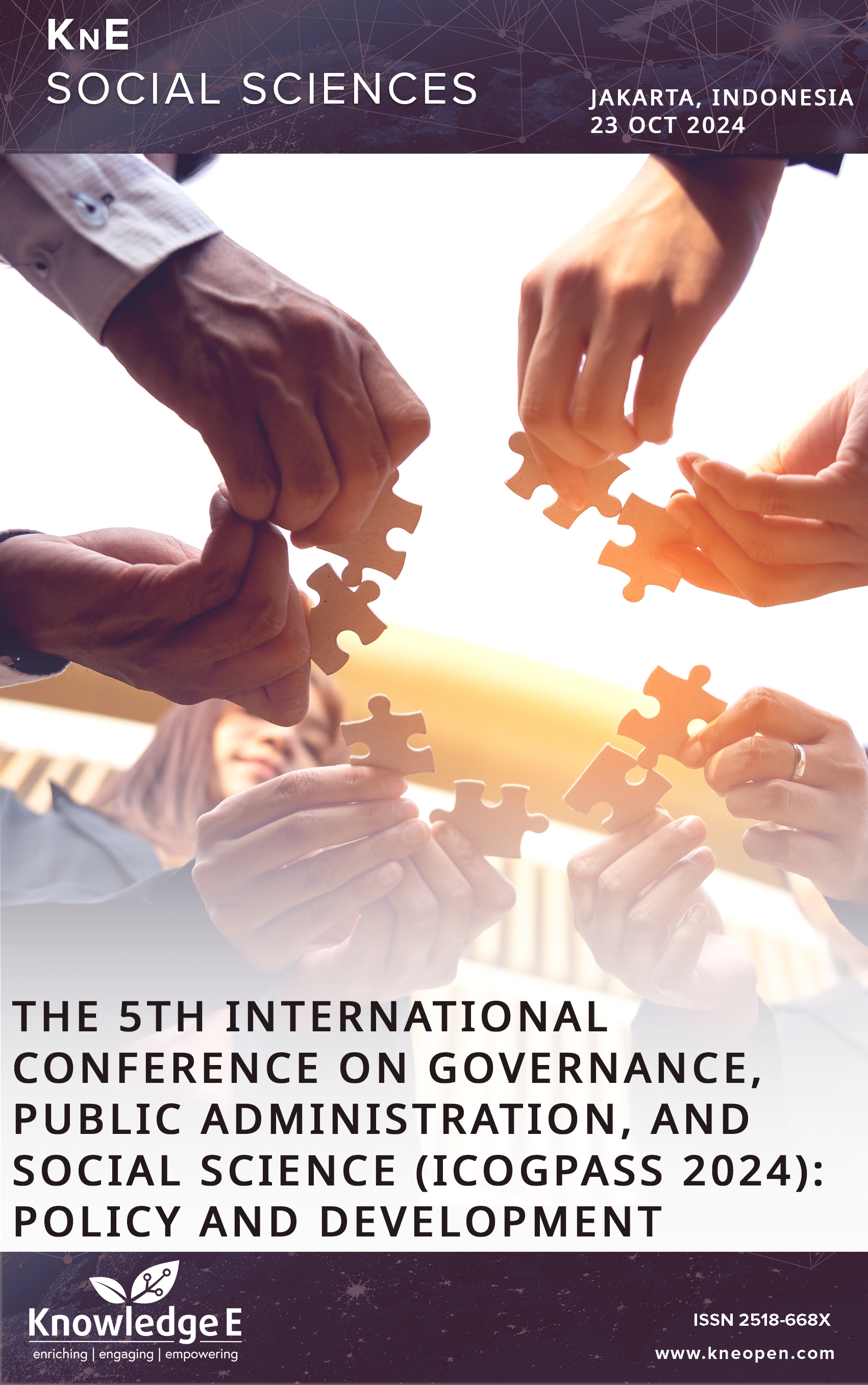Empowerment of Women Weavers as MSME Actors in Kupang Regency: Analysis of Challenges and Effective Strategies
DOI:
https://doi.org/10.18502/kss.v10i15.19207Keywords:
empowerment, women, weave, povertyAbstract
This research article aims to determine women’s empowerment through MSMEs to overcome poverty in Kupang Regency, and strategies to overcome factors that hinder the effectiveness of empowerment. This study uses a qualitative approach with data collection methods through structured interviews, FGDs, and secondary data documentation. The results of the study indicate that 1) Women’s empowerment by the local government through MSMEs has not fully met the expectations of weavers because local government intervention is still limited. 2) The causes of this failure are economic factors and low competency development. 3) The strategy is directed at strengthening capital, developing expertise in information technology, improving product quality, and marketing. These efforts are carried out through management and access to capital, technical guidance, and supervision of the quality of woven products. For this reason, collaboration is needed between local governments, craftsmen, and cooperatives/private parties in encouraging increased productivity, product quality, and marketing. The role of local governments is very important in facilitating craftsmen through empowerment policies that are relevant to their needs and expectations, and encouraging the private sector/cooperatives to support local government policies to improve the welfare of weavers. Further research is needed on the implementation of empowerment policies that involve all stakeholders.
References
[1]Bharathi NS, Balaji V, Christina D, Akash A. Vital analysis of women empowermentin marginalised communities. 2021.
[2]Buvinić M, O’Donnell M. Gender matters in economic empowerment interventions:A research review. World Bank Res Obs. 2019;34(2):309-346.
[3]Cornwall A, Rivas A-M. From ’gender equality and women’s empowerment’ to globaljustice: Reclaiming a transformative agenda for gender and development. ThirdWorld Q. 2015;36(2):396-415.
[4]Deepthi K. Breaking the glass ceiling: Empowering women from margins tomainstreams. 2023.
[5]Creswell JW. Research design: Qualitative, quantitative, and mixed methodsapproaches. 4th ed. Thousand Oaks, CA: Sage; 2014.
[6]Duflo E. Women empowerment and economic development. J Econ Lit.2012;50(4):1051-1079.
[7]Kabeer N. Resources, agency, achievements: Reflections on the measurement ofwomen’s empowerment. Dev Change. 1999;30(3):435-464.
[8]Kabeer N. Women’s empowerment and economic development: A global perspec-tive. J Int Dev. 2020;32(8):1304-1320.
[9]Mayoux L. Micro-finance and the empowerment of women: A review of thekey issues. Social Finance Working Paper No. 23. Geneva: International LabourOrganization; 2000.
[10]World Bank. Voice and agency: Empowering women and girls for shared prosperity.Washington, DC: World Bank; 2014.
[11]Murthy KS. Empowerment of women - A conceptual framework. Int J Adv Res. 2022.doi:10.21474/IJAR01/14617.
[12]Princy D. An analysis of women empowerment with special reference to India. Int JMultidiscip Res. 2023;5:1-6.
[13]Miles MB, Huberman AM, Saldana J. Qualitative data analysis: A methodssourcebook. 3rd ed. Thousand Oaks, CA: Sage; 2014
[14]Sen A. Development as freedom. New York: Oxford University Press; 1999
[15]Todaro MP, Smith SC. Economic development. 13th ed. Boston: Pearson; 2020.
[16]Sugiyono. Metode penelitian kuantitatif, kualitatif, dan R&D. Bandung: Alfabeta; 2018.
[17]Smith LC, Jones AD. The role of women’s empowerment in improving child nutritionand health. Glob Food Sec. 2022;33:100626.
[18]Williams J. The impact of early marriage and pregnancy on education andemployment opportunities for young women. J Youth Stud. 2021;24(3):329-344.
[19]Badan Pusat Statistik (BPS). Pengukuran kemiskinan di Indonesia. Jakarta: BPS;2023.
[20]Inter-Parliamentary Union. Women in national parliaments. 2021. Available from:https://data.ipu.org/women-ranking
[21]UN Women. Gender equality and climate change. 2020. Available from:https://www.unwomen.org/en/what-we-do/climate-change/gender-equality-and-climate-change
[22]Kementerian PPN/Bappenas. Strategi nasional penanggulangan kemiskinan.Jakarta: Bappenas; 2023
Published
How to Cite
Issue
Section
License
Copyright (c) 2025 Hamka, Galuh Pancawati, Karnida Retta Ginting

This work is licensed under a Creative Commons Attribution 4.0 International License.

